Longleaf Alliance: Lab Studies in Hurricane Ecology

Join the members of the Jones Center Landscape Ecology Lab as we present our latest research at the 15th Biennial Longleaf Conference, taking place from October 7 to 11, 2024, in Miramar Beach, Florida.
Presentations from our lab will focus on hurricane ecology in longleaf pine, considerations for management hurricane risk to longleaf pine ecosystems, and two lab members will debut work on hurricane ecology using dendrochronological and remote sensing techniques
New study: Overstory and litter properties drive fuel dynamics
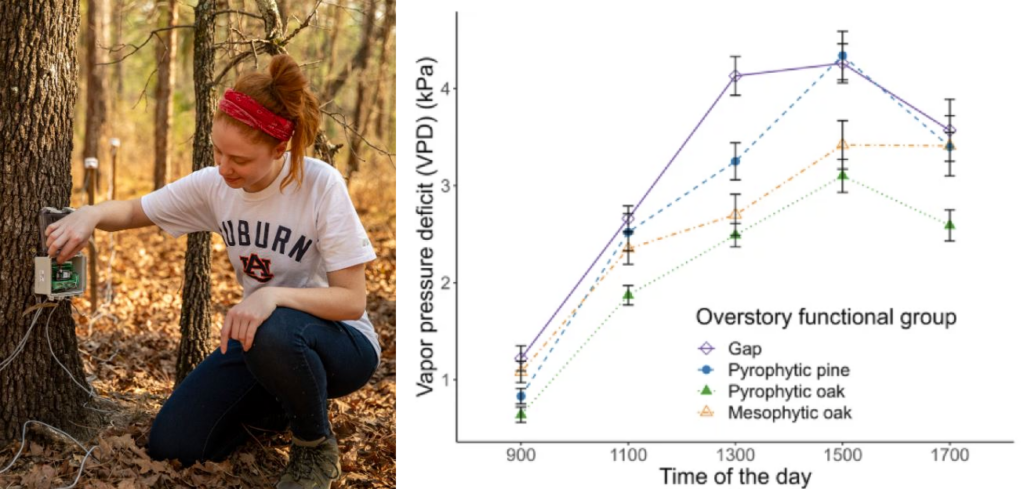
The composition of fire-dependent forests can shift after decades of fire exclusion. Forests can shift to trees with distinct overstory and leaf litter traits that can further suppress fire and make restoration difficult. We compared how leaf litter and overstory properties differed between fire-adapted pines and oaks, and the non-fire adapted species that often encroach after fire suppression. We found that trees produced distinct microclimates and that drying properties of leaf litter varied among species. This information is useful for understanding mesophytic encroachment and for accelerating successful restoration efforts
Module 1: Getting started with LiDAR processing for forestry and natural resources
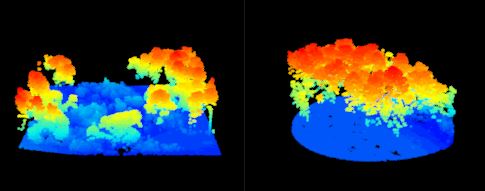
If you are interested in learning to use LiDAR for forestry and natural resources, this tutorial can help you get started. You will learn to view large datasets, create raster products, map trees, and more!
PNAS: New study defines hurricane regimes for North American forests
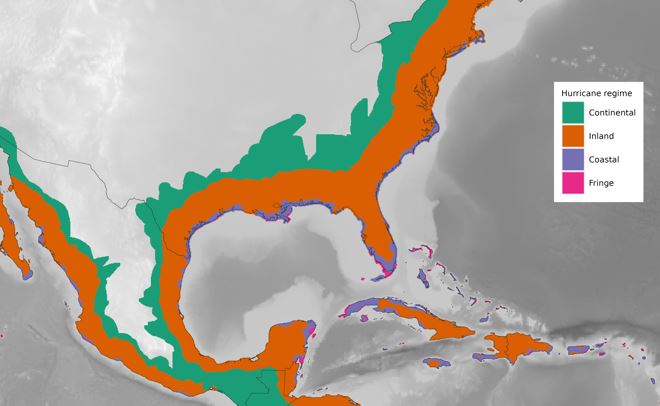
Hurricanes are a chronic disturbance to many forests. but currently no study defines hurricane regimes for North America. This study uses hurricane models and long-term data to define four distinct hurricane regimes for the region, and discusses how hurricanes may be a useful lens for understanding the distribution of tree species and their traits.
New study: Mitigating hurricane damage in pecan
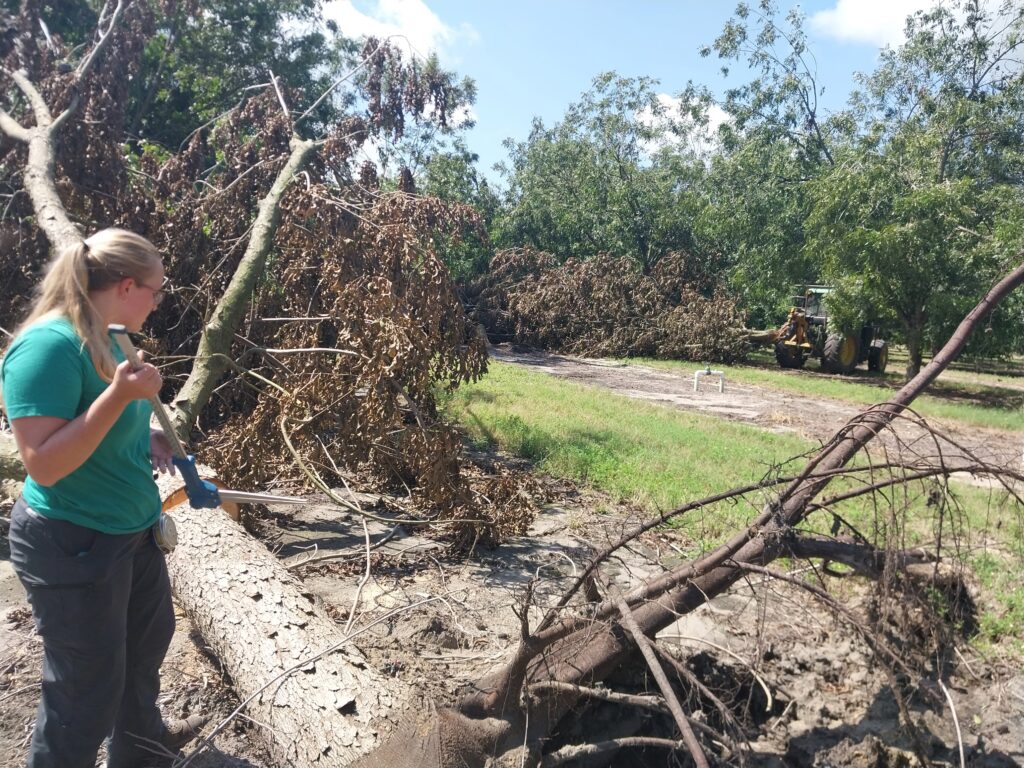
Pecan orchards are a vital part of southern Georgia’s working landscapes, but recent hurricanes have caused severe losses to growers. In a post-storm field study, our lab surveyed over 1,100 trees across 11 orchards following Hurricane Idalia to understand patterns of wind damage. We found that intermediate-sized trees were most vulnerable and that orchard age structure plays a key role in storm resilience. These findings provide a foundation for climate-smart practices that can reduce risk and improve long-term sustainability.
Now hiring: Landscape Ecology Seasonal Technician
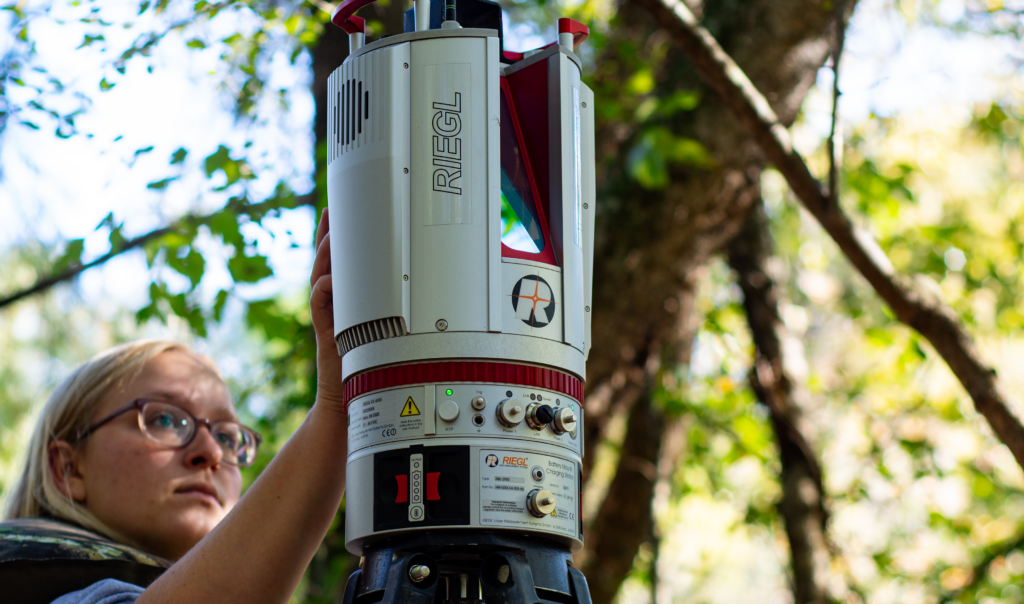
We are seeking motivated individuals to apply for a Seasonal Technician position to contribute to research on restoration and hurricane ecology of longleaf pine woodlands. The successful applicant will assist with field data collection on forest restoration research, and collection and processing of terretrial lidar data. The position will work in a team setting with staff of the Landscape Ecology lab at the Jones Center at Ichauway. Applications reviewed immediately.
Extracting Stand Attributes from Aerial LiDAR Data

I was tasked with using aerial LiDAR to monitor changes in forest structure in a 30-year-old longleaf pine stand after thinning. After completing our lab’s online tutorials for getting started with LiDAR, I was able to develop an R script for estimating tree- and stand-level attributes. Follow along on this tutorial to see how simple remote sensing can be!
Winter Recap from the Aquatic Sciences Lab
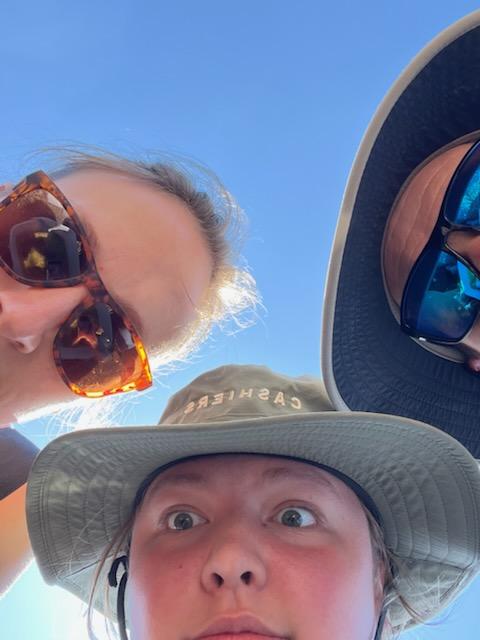
The Aquatic Sciences lab never sleeps! As spring starts to look like summer, we’d take a quick look back at a busy winter and spring. New research from the lab Two new papers from the lab, both first author works from Nick’s PhD and postdoc work. Marzolf NS, Meza-Salazar AM, Hidalgo M, et al. (2025) […]
New study: Patchy longleaf pine regeneration changes fuels and fire behavior
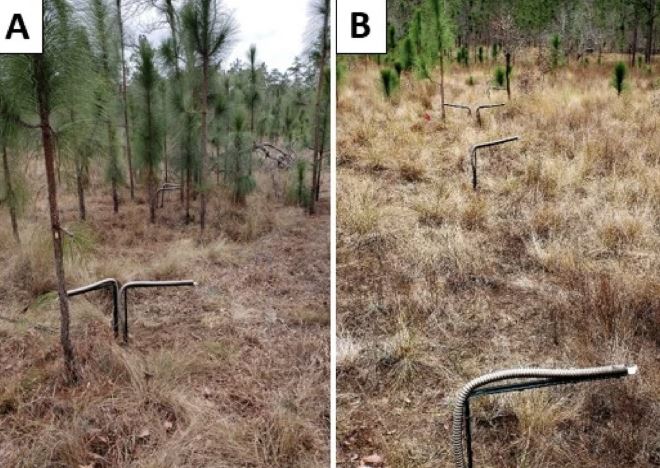
Longleaf pine ecosystems depend on frequent fire which changes competitive and growth dynamics of the ecosystem. However, fire behavior is complex and driven by complex feedbacks between fire effects, fuels, and vegetation. In an intensive field study, we investigated how dense patches of longleaf pine regeneration can change fuels and fire behavior compared to regenerating saplings occuring singly. We found that regeneration have altered fuels, and often reduced fire behavior in a manner that likely shapes spatial dynamics in the ecosystem
Fishes of the Flint River Basin
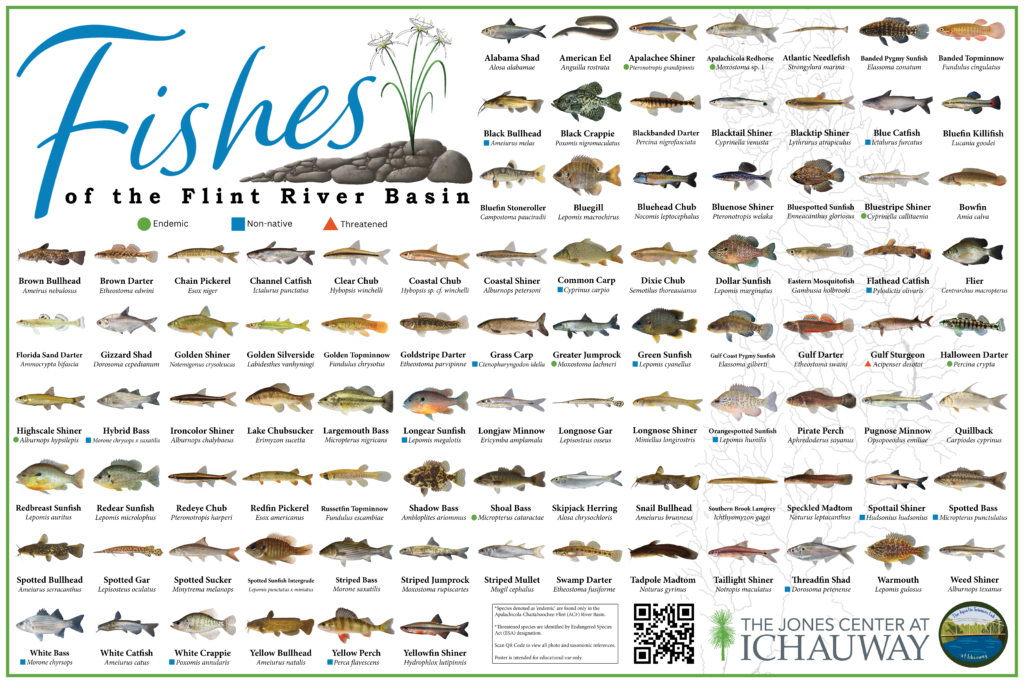
The Aquatic Sciences Lab at The Jones Center at Ichauway is excited to share a compilation highlighting the incredible fish diversity of the Flint River Basin. Using a wide range of sources, we identified 92 species of fish present in the Flint River Basin, including native, endemic, threatened, and non-native species. Species designations and ranges […]
Now recruiting: PhD Research Assistantship in Forest and Fire Ecology

We are seeking motivated individuals to apply for a PhD research assistantship in Forest and Fire Ecology. The research will combine field intensive fuel, fire behavior, and regeneration data collection, mapping and processing, and capitalizing on existing and new data from the Ichauway Forest Dynamics Plot at the Jones Center. The student will be appointed as a Graduate Research Assistant (GRA) but will assist with teaching undergraduate courses in Forest Fire Management and Forest Ecology. Although a PhD student at Auburn University, the student’s work will be co-sponsored by the Jones Center at Ichauway. Applications reviewed February 28, 2025.
Lab’s mesophication work featured on Fire Ecology Chats Podcast (Ep. 37)
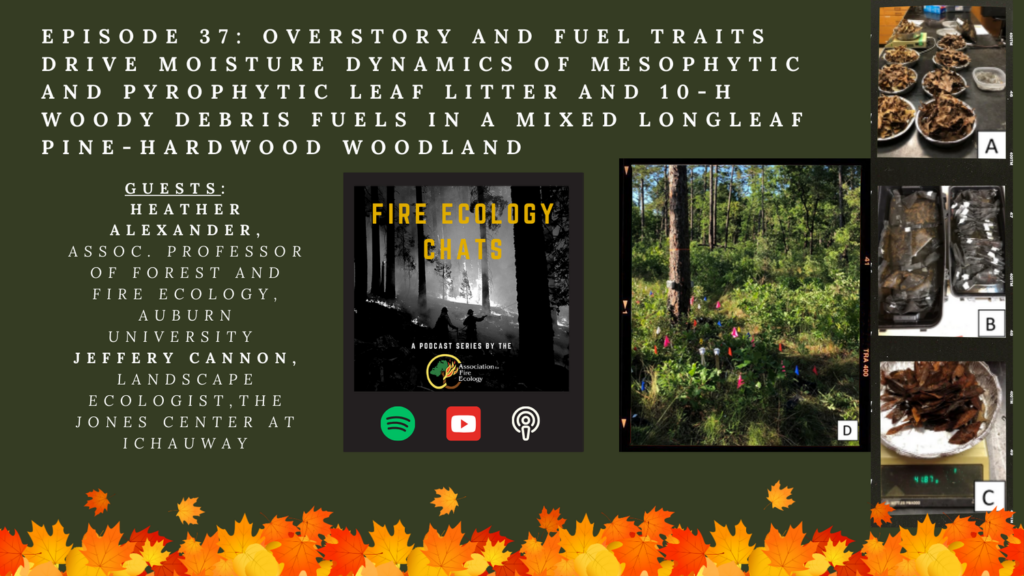
In this episode of Fire Ecology Chats, Fire Ecology editor Bob Keane speaks with Heather Alexander and Jeffery Cannon about reintroducing fire into mixed longleaf pine-hardwood woodlands, and how that will be affected by the shade-tolerant, fire-sensitive species that have grown during periods of fire exclusion.
Ichauway: Rainfall Wrapped 2024
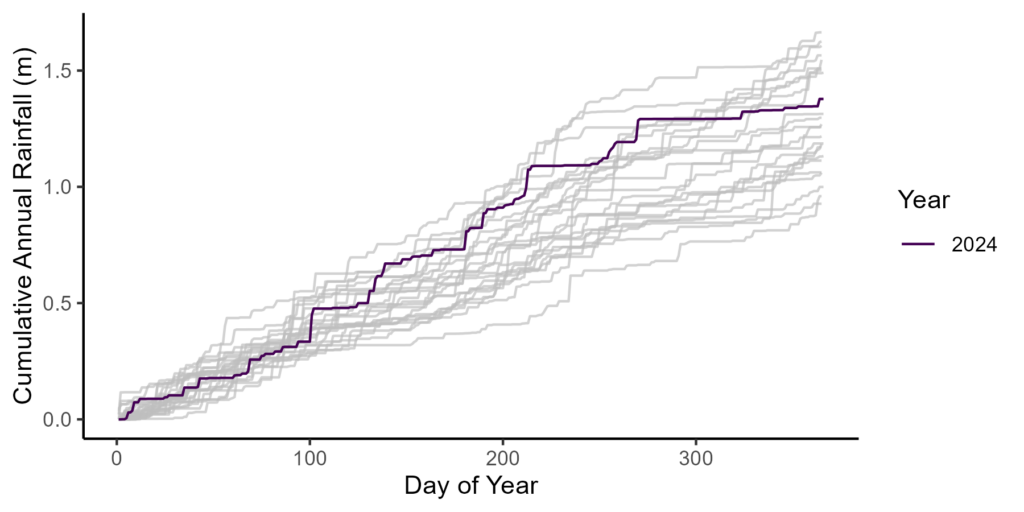
Happy New Year from the Aquatic Sciences Lab! The lab celebrates our first-year anniversary this month and we are looking both backwards at a busy 2024 and forwards to an exciting 2025. We will be making our way to you at conferences and welcoming new lab members and graduate students (more to come soon!). As […]
Now hiring: Landscape Ecology Geospatial Analyst

We are seeking motivated individuals to apply for a Geospatial Analyst position to contribute to research and development that will improve forest conservation efforts in the southeastern US. Both remote and in-person candidates will be considered. The successful applicant will integrate cutting edge technologies (UAV and lidar), field experiments, and data science techniques to contribute to collaborations with conservation agencies and research partners. The position will work in a team setting with staff of the Landscape Ecology lab at the Jones Center at Ichauway. Applications reviewed immediately.